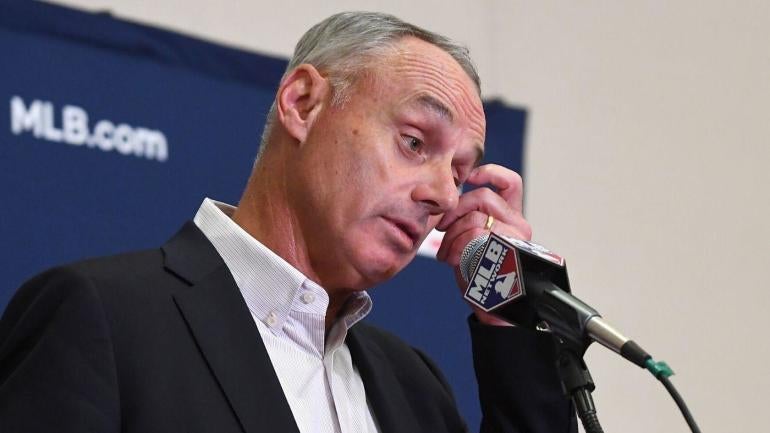
Should the spread of the novel coronavirus permit it, Major League Baseball will launch its regular season on July 23, or in about three weeks' time. On Wednesday, commissioner Rob Manfred joined The Dan Patrick Show to discuss that season and the failed negotiations between the league and the union that precipitated Manfred mandating a 60-game season for the players.
You can listen to the full interview here, but we wanted to highlight a few of Manfred's comments, beginning with what he told Patrick about the length of the season.
"The reality is," Manfred said, "we weren't going to play more than 60 games no matter how the negotiations with the players went."
This is a notable comment considering the possibility that the union files a grievance alleging Manfred and the owners did not operate in good faith when it came to playing as many games as possible. Different people will read/hear different things in Manfred's quote -- and he'd likely claim he was talking about the negotiations that occurred after a face-to-face meeting with union head Tony Clark -- but it shouldn't surprise anyone if the union makes sure they save this clip for later. If not for the above, then at least for what Manfred said to a follow-up question.
Patrick asked Manfred if he and the owners would have agreed to a longer season if the players had met the rest of the league's demands. Manfred responded with the following, per FOX Sports Radio:
We're playing sixty games in sixty-three days. I don't see, given the reality of the health situation over the past few weeks, how we were going to get going any faster than the calendar we're on right now. Look, we did get a sub-optimal result from the negotiations. The fans won't get an expanded postseason, which I think would have been good with the shortened season. The players left real money on the table. That's what happens when you have a negotiation that, instead of being collaborative, gets into a conflict situation.
To recap: Manfred pivoted from declaring that the league was never playing more than 60 games, no matter what, to saying that the negotiations produced suboptimal results because of a spirit of conflict rather than collaboration.
Perhaps it's no wonder why Miami Marlins CEO Derek Jeter said that there's "no trust" between the league and the union. And perhaps it's no wonder why so many are pessimistic about the chances of MLB avoiding a labor stoppage heading into the 2022 season -- the current Collective Bargaining Agreement expires after the 2021 season.


















